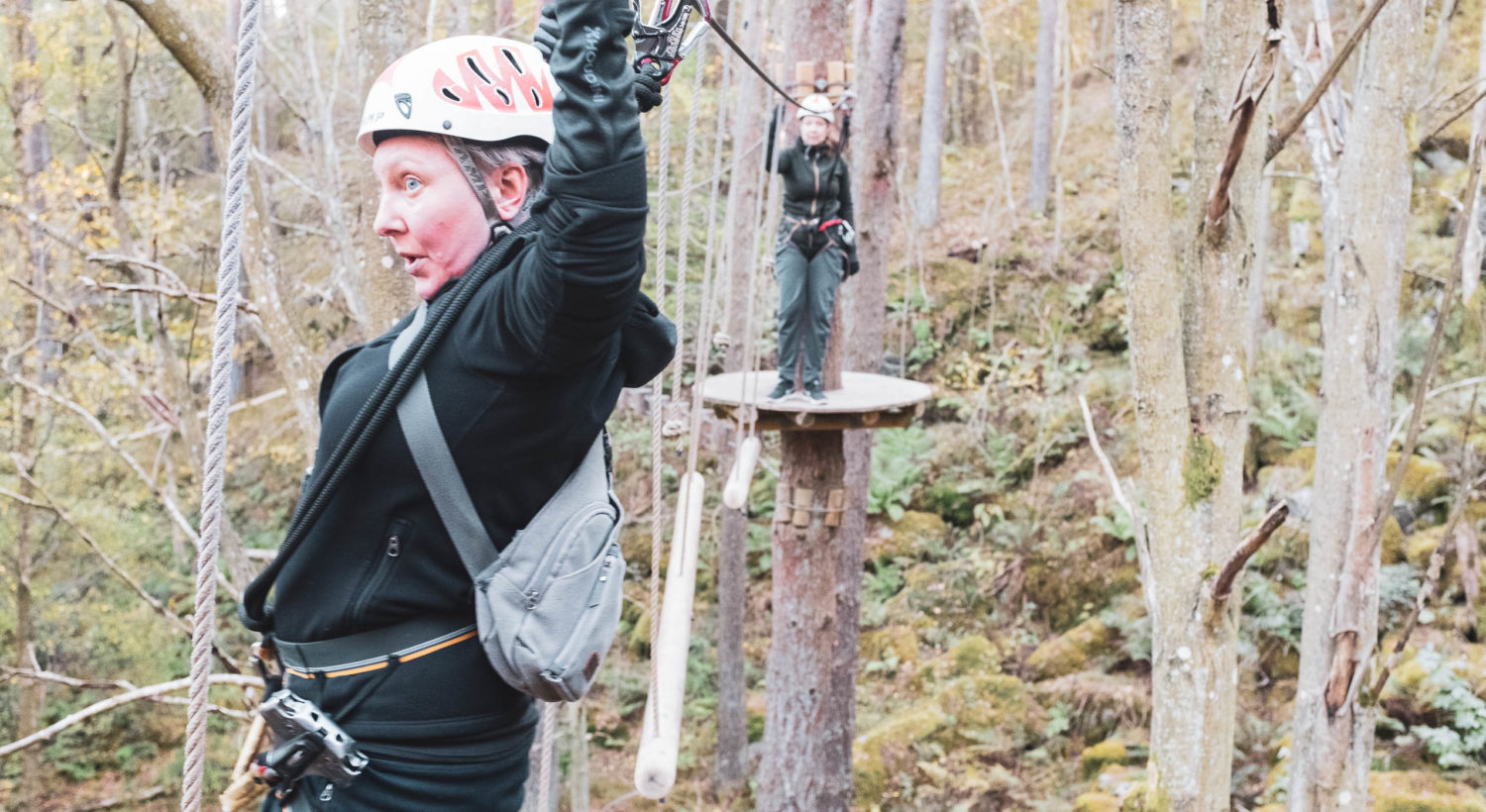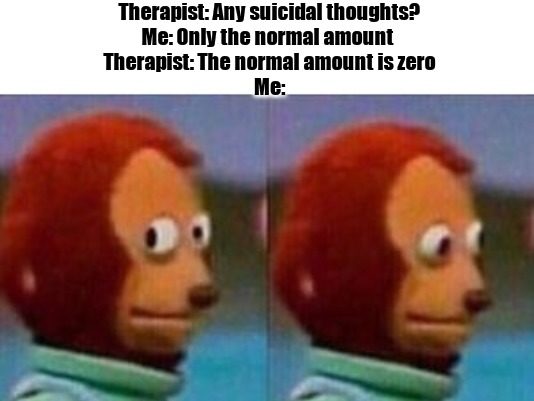
Asher, however, is not part of a typical influencer collective. He is one of many members of a 29-person “system,” all of whom share a single body, brain, and life. Each person, or “alter,” in the system is a distinct form of consciousness. This group of identities live together in the body of a 31-year-old man diagnosed with dissociative identity disorder (DID), previously known as multiple personality disorder. The A System’s account — by far the biggest in the DID TikTok community — has amassed 1.1 million followers since February 2021.
Input: Inside TikTok’s booming dissociative identity disorder community
There’s a character in Doom Patrol with 64 personas / alters – Jane – and although her experience is partially supernational, the origins of her alters are in respons to trauma, which is the popular understanding of the phenomena. But is this something which instead might be cultivated or implanted, and how would that work socially? How would your family react if “you” decided to branch off an alter just for dealing with familial relations, along parameters that “you” have some initial control over – more caring, less truculent, prouder? The book A Memory called Empire touches on this, with lineages of implanted personas who inhabit sequential persons, providing knowledge and experience, but also forcing “the main” to come to terms with the voices in her head.
Over time, groups that drank together would have cohered and flourished, dominating smaller groups—much like the ones that prayed together. Moments of slightly buzzed creativity and subsequent innovation might have given them further advantage still. In the end, the theory goes, the drunk tribes beat the sober ones.But this rosy story about how alcohol made more friendships and advanced civilization comes with two enormous asterisks: All of that was before the advent of liquor, and before humans started regularly drinking alone.
The Atlantic, Kate Julian: America Has a Drinking Problem
As a teenager alcohol was not so much a door of perception as a a second story window you had to climb through to act in forbitten ways, but as an adult it’s clear that for many it’s the only legal way to selfmedicate out of a depression – SSRI:s and the like notwithstanding. I’m not sure what the movie Druk / Another Round was trying to make about alcohol – it’s about four middle-aged men who experiment with being constantly buzzed to bring joy back into their lives – but getting stuck with addiction or bad habits because you’ve confused the means to happiness with happiness itself is a real thing; be it laziness or full blown substance abuse.
I was surprised to learn that Neville hadn’t attempted to interview Argento for the film. The lead-up to Bourdain’s suicide, he explained, is “like narrative quicksand. People think they want to know more, but you tell them one thing more, and they want to know ten more.
The New Yorker, Helen Rosner: A Haunting New Documentary About Anthony Bourdain
I only vaguely know of Bourdain as a darling media figure, but I didn’t know that he became famous at the same age that I’m at right now. Somehow famous people show up fully formed in my field of view, and I don’t reflect on where they came from or who they are beyond their public persona. I guess I’ll have to watch the documentary now.

This is a shorter summary of the Fun Theory Sequence with all the background theory left out – just the compressed advice to the would-be author or futurist who wishes to imagine a world where people might actually want to live: […] People should get smarter at a rate sufficient to integrate their old experiences, but not so much smarter so fast that they can’t integrate their new intelligence. Being smarter means you get bored faster, but you can also tackle new challenges you couldn’t understand before.
Lesswrong.org, Eliezer Yudkowsky: 31 Ways of fun
I guess this is a list of questions you might ask yourself if you’re imagining the future – you’re writing a book say, or world building a computer game – but I found the questions existentially useful as well: how important is this point to me and what should I do to reach it? At the time of writing this, I’m fundamentally uncertain of where I’m heading in life, and questions such as these help me meditate on what I want vs what I think I ought to want.
Robert Lowell once said that if humans had access to a button that would kill us instantly and painlessly, we would all press it sooner or later. If there were a switch to flip—“some little switch in the arm”—we would inevitably flip it. At a moment of weakness or a moment of strength, depending on your understanding of the act, we would all make the decision to die, if it were convenient enough.
Harpers, Will Stephenson: The Undiscovered Country

The state of research on the topic of suicide, 2021. From Swedish machines which can predict if you’re going to kill yourself, to the problem with reductionist analysis. My therapist was of the opinion that suicidal idolation was always a negative, while for me it’s been a constant companion – mind, those two suggestions don’t contradict each other – but recurring thoughts of suicide just feels like a social faux pas; like mentioning an infected boil at dinner table. The latter might actually be more constructive since your dinner guests can suggest a topical cream, but what the hell can they do about the former except expressing concern?
Our sessions on the topic reminded me of the awkward monkey meme.
Foreman and her colleagues at the American Association of Suicidology look forward to seeing the dialogue expand around suicide memes, however inelegantly. “I’ve never known a single problem that got better by not talking about it,” Foreman says. “Not a single public-health problem has gotten better by reducing conversation.”
The Atlantic, Elizabeth Anne Brown: Suicide Memes Might Actually Be Therapeutic
They were ‘always happy’, he says. And what did their happiness consist in? An endless round of feasting, drinking, hunting and love-making. Who would not sicken of such an existence after a few weeks? […] The inability of mankind to imagine happiness except in the form of relief, either from effort or pain, presents Socialists with a serious problem.
George Orwell: Why socialists don’t believe in fun
And here we’re back to what “31 laws of fun” touches upon – A Utopia, or a good place isn’t static. It’s not a set of stuff or things or events – it might be about relationships between persons, allowing an unending combination of ambitions and passions to be expressed with a minimal framework safeguarding “personal rights” – but regardless, it’s more difficult to point out what is good than what is bad. Avoiding bad stuff isn’t happiness but relief, or Utopia would be a place where bad things constantly happen just so that you then can mitigate them. Then again – that’s one of the 31 laws listed above: present challenges difficult enough that solving them feels rewarding.